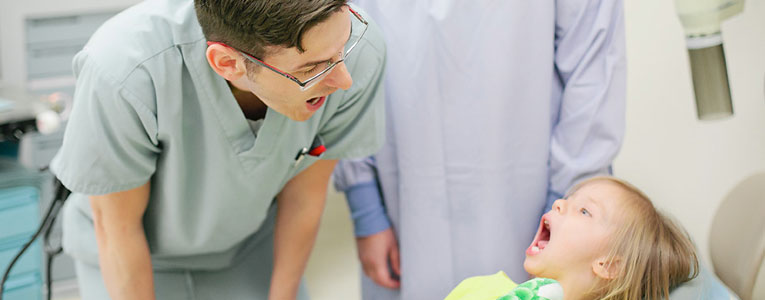Common Questions asked by Dentists
I have never worked on an anesthetized patient before. Is this a problem?
No, this isn’t a problem at all. Dr. Michaud is here to walk you through each step of the process and make sure that you are comfortable and that your patient is safe. Many dentists prefer to treat anesthetized patients in office because with a dental anesthesiologist it’s safe, easy, and productive. Patients also prefer to receive anesthesia in your office, a setting where they know the surrounding dentist and staff care about them.
What does the Dental Anesthesiologist require to come to our office?
Your office does not need any special equipment. Dr. Michaud brings all the necessary drugs, monitors, and emergency equipment with him to provide all levels of anesthesia in your office. All the dental work can be done in a normal dental operatory. We may ask to visit the office to see how things are set up prior to the first appointment.
How does a Dentist Anesthesiologist fit into the dental team?
Dr. Michaud went through dental school before receiving any of his medical or anesthesia training. He is first and foremost a dentist. As such, he understands the goals you and your patients have and easily fits into the dental team. It doesn’t take long for patients to realize the anesthesiologist is a dedicated member of your team, whose focus is to create an anxiety free, painless, and positive experience. As patients see that you care enough about their experience to include a dentist anesthesiologist, dentistry’s experts in anxiety and pain control, they will trust you as you lead them to the picture-perfect smile.
Who is a candidate for anesthesia?
Most children, adolescents, and adults in good health are candidates for anesthesia. Dr. Michaud has found the greatest pleasure in helping those who would not be able to receive dental work without anesthesia, such as:
- Pre-cooperative age children
- Patients with extensive treatment plans
- Toddlers with rampant carries
- Patients who avoid the dental care they need because of fear or anxiety
- Seniors with Alzheimer’s or limited ability to cooperate
- Adults with tremor disorders like Parkinson’s disease or cerebral palsy whose involuntary movements make even minor treatment risky
- Children with ADD or ADHD who have difficulty sitting still
- People with developmental disabilities whose ability to follow directions may be limited
- Individuals with psychiatric disorders, who might injure themselves or the dental team during treatment

What is a dental anesthesia residency like?
A dental anesthesiology residency is a two to three year residency dedicated to the full time study of anesthesia. Residents complete coursework and medical rotations in areas of medicine specific to anesthesia such as cardiology, internal medicine, and pharmacology. In his internal medicine rotations, Dr. Michaud treated patients for a wide variety of ailments, from hypertension to hepatitis. This training is necessary to understanding the complex medical histories of medically compromised patients. Additionally, Dr. Michaud spent ten months providing general anesthesia in hospital operating rooms for everything from emergency trauma cases to knee and hip replacements. The remainder of his residency was spent providing general anesthesia for dental patients (mostly pediatric and special needs) in an outpatient dental clinic setting.
Are dental anesthesiologists trained to nasally intubate?
Yes, Dr. Michaud has extensive training and is proficient at nasal intubation. He is also excels at oral intubation and open airway techniques. Dentist anesthesiologists are the specialists at nasal intubation. During his residency Dr. Michaud was asked to help train junior medical residents and nurse anesthetist students in nasally intubating atraumatically and efficiently.
Why use a dentist anesthesiologist instead of a physician anesthesiologist or a nurse anesthetist?
Physician anesthesiologists and nurse anesthetists are specifically trained to work in a hospital setting. Dr. Michaud has trained in a hospital setting, but additionally trained and is comfortable providing anesthesia in an outpatient dental setting. Therefore, he understands and is experienced with the unique requirements of this type of anesthesia.
Dr. Michaud also has extensive experience with pediatric patients. He saw significantly more pediatric patients for general anesthesia than the average physician anesthesiologist or nurse anesthetist did during their training. As a dentist, he is also very familiar with the head and neck area, the special requirements of the procedures being performed, and the ins and outs of how dental offices function.
How do we schedule you to come to our office?
If you would like to utilize the services of Northern Lights Dental Anesthesia in your office, please call us. Either Dr. Michaud or his staff will speak with you or your front office to get an anesthesia day scheduled. It is best to do sedation and anesthesia cases in the early morning. We can work with you and your front office to find the best day for you and your patients. Currently we suggest that you schedule at least two adults or three children; however, Dr. Michaud is happy to see more than two or three cases a day. Most of the forms that are necessary for the patient can be found under the forms section on our website.
